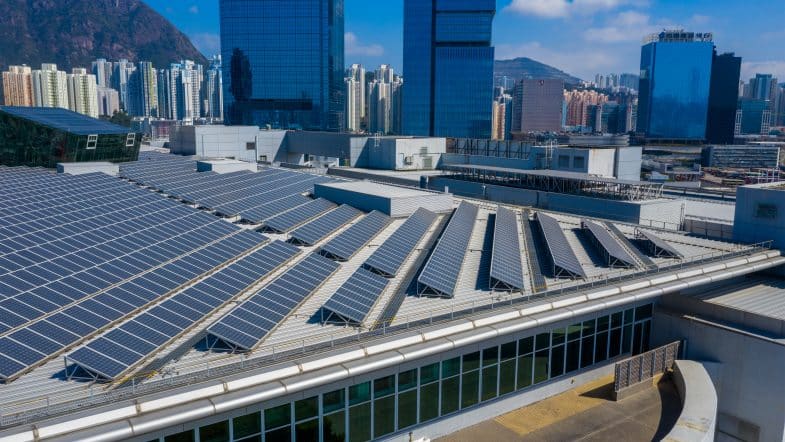- Leveraging on the synergies enabled by its diversified model, BNP Paribas launches this new fund that results from a close collaboration between BNP Paribas Asset Management, BNP Paribas Corporate & Institutional Banking, and BNP Paribas Cardif.
- It combines their complementary expertise to offer a comprehensive financing solution to projects and players involved in the energy transition and climate change mitigation.
- Targeting EUR 500-750 million from institutional investors, it aims to support energy transition projects across continental Europe and has already secured three investments.
BNP Paribas announces the launch of BNP Paribas Climate Impact Infrastructure Debt, an initiative supported by the aligned commitments of BNP Paribas Asset Management (‘BNPP AM’), BNP Paribas Corporate & Institutional Banking (‘BNPP CIB’) and BNP Paribas Cardif to finance climate change mitigation.
Managed by BNPP AM’s Private Assets division, BNP Paribas Climate Impact Infrastructure Debt is structured as a Luxembourg Reserved Alternative Investment Fund (‘RAIF’) and classified as Article 9 under SFDR. The fund is targeting EUR 500-750 million from institutional investors, including BNP Paribas Cardif’s seeding commitment. It will have an investment grade profile and is expected to allocate to transactions in continental European countries, supporting energy transition projects that are in line with its investment philosophy by focusing on renewable energy, clean mobility and the circular economy, including new sectors such as batteries, hydrogen and carbon capture.
Three investments have already been secured for the fund, with financing for a low-carbon energy producer, a green-sourced district heating platform and a portfolio of onshore wind farms.
The collaboration within the BNP Paribas Group will ensure unique and scalable origination from both the wider market and internal origination teams. Sourcing capability will benefit from the market-leading origination capabilities of BNP Paribas’ Low Carbon Transition Group, with more than 200 dedicated investment professionals advising on and originating low carbon assets and an annual global origination in excess of EUR 20 billion, together with BNPP AM’s track record of investment in infrastructure and sustainable finance.
Karen Azoulay, Head of Real Assets within BNPP AM’s Private Assets division, comments: “From its inception, environmental solutions have been a key strategic pillar of our Private Assets division. The launch of Climate Impact Infrastructure Debt confirms this and marks a significant step forward in our ongoing efforts to support financing the transition to a low carbon economy and offering our clients BNP Paribas’ unique origination capacity dedicated to this class of assets.”
Olivier Hereil, Deputy CEO in charge of Asset Management at BNP Paribas Cardif, adds: “As a responsible investor, we are proud to collaborate on the launch of Climate Impact Infrastructure Debt. Our conviction at BNP Paribas Cardif, alongside BNP Paribas Group’s energy transition policy, is that it is essential to manage policyholders’ savings in a long-term perspective by combining financial performance with a positive impact on environment and society. This new investment is part of BNP Paribas Cardif commitment to allocate 1 billion euros per year on average in positive impact investments by the end of 2025.”
“Leveraging on our powerful integrated bank model, this new fund is another evidence of our accelerated low carbon expertise buildout in support to our corporate clients, also offering a differentiating strategy to financial institutional investors to deploy their capital into the transition of the real economy” declares Khoi Anh Berger Luong, Head of Real Assets for EMEA at BNP Paribas CIB.
Séverine Mateo, Global Head of BNP Paribas’ Low-Carbon Transition Group, concludes: “Bridging across BNP Paribas’ origination, distribution and investment capabilities in the low-carbon transition space perfectly fits with the Group’s strategy to accelerate the transition to a lower carbon and more sustainable economy.”
Source
